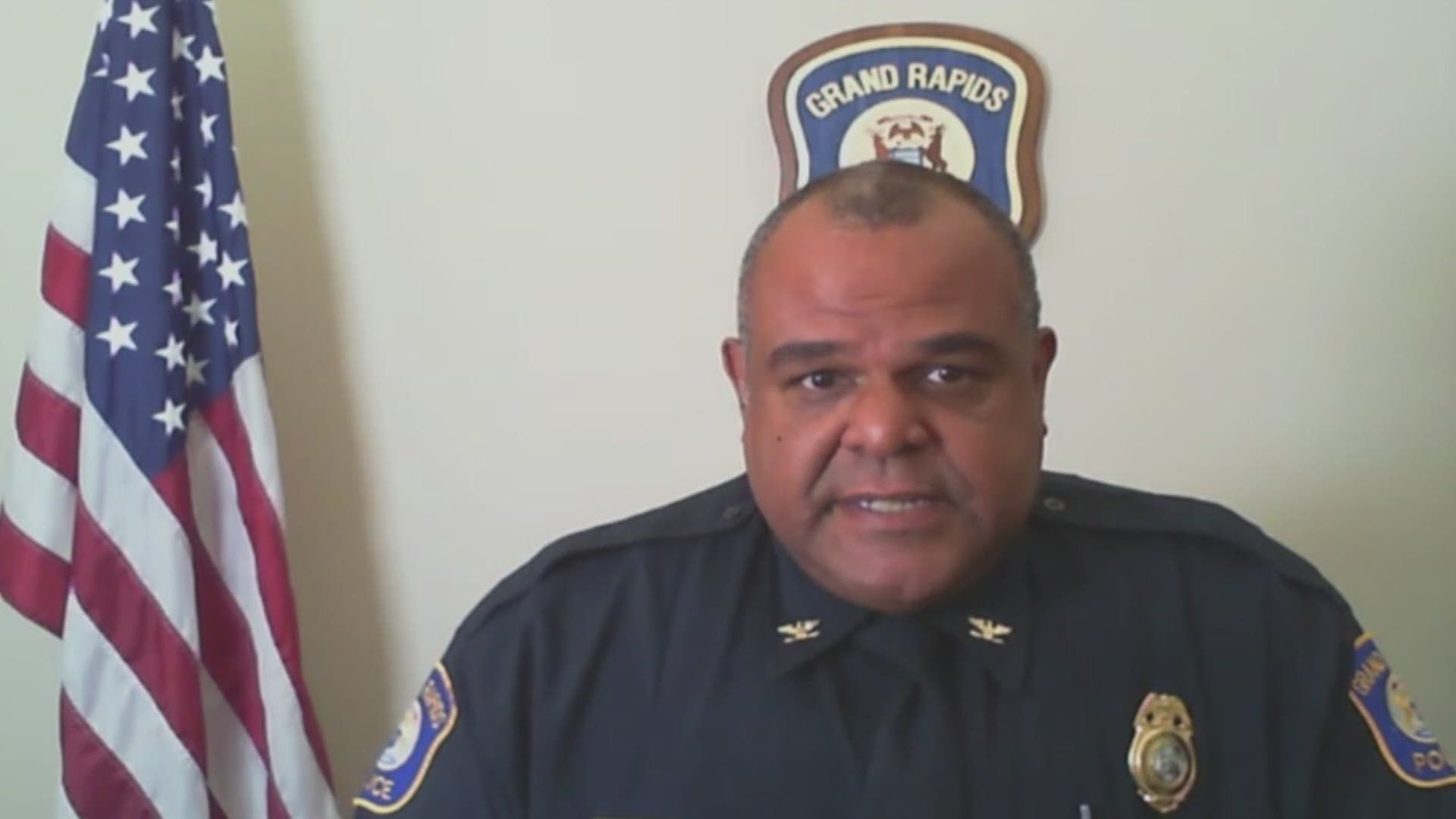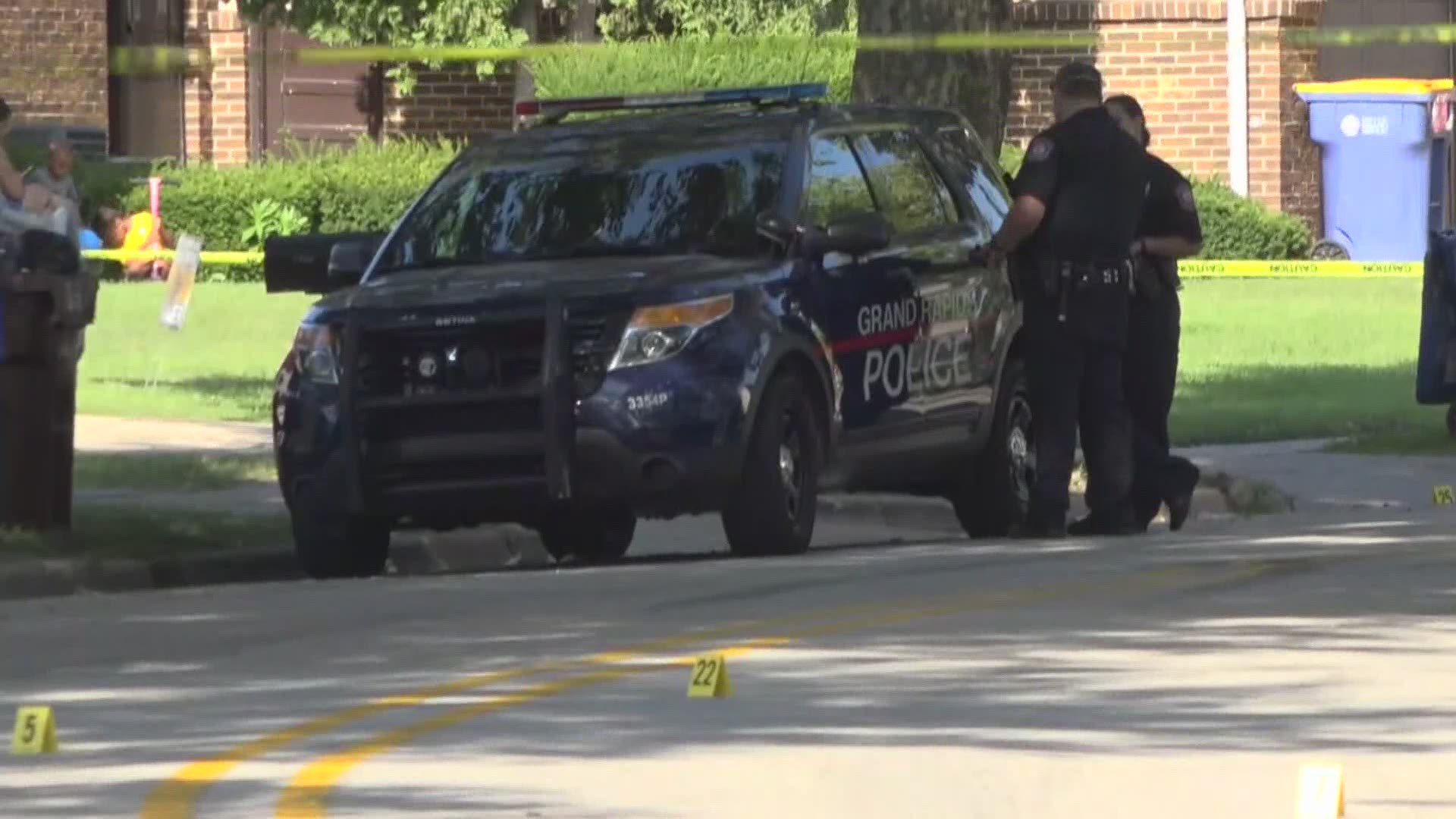GRAND RAPIDS, Michigan — The Grand Rapids Police Department on Tuesday presented its final plan to city leaders on how it plans to 'transform policing' in the next three years and address the role policing plays in systemic racism.
It comes at a time when community members have been asking for the city to reduce the police department's budget to at least 32% of the general fund, which is the lowest allowed by the city charter, and instead, invest that money back in Black and Latinx communities. The police department currently accounts for 37.4% of the city budget, the city said Tuesday. A further budget reduction is not included in the plan.
Community members and service providers also continue to call on the city to invest in prevention work to address the ongoing gun violence that has led to more than half of the 26 homicides in the city this year. The department has said this is a priority and that its working alongside community partners to find funding, however, there is no timeline.
The strategic plan, which Chief Eric Payne says was amended based on community, police personnel and city feedback since its first draft in early August, focuses on a neighborhood policing model alongside 'hot spot policing.'
Payne said hot spot policing, which the department says will utilize "crime data and community input" to determine crime hot spots, has already been enacted on the streets.
"After a recent increase in violent crime, I have already enacted the strategies from this plan to hot spot neighborhoods around the city," he said.
He said over a recent three night period extra officers were deployed to take part in "strategic enforcement, which resulted in 155 positive non-enforcement contacts, 34 arrests and 10 illegal firearms taken off the streets."
Payne said he also wants to prioritize continued implicit bias training and partner with healthcare specialists to reduce the number of calls patrol officers respond to, items that were recommended by Linc Up, Urban Core Collective and the Grand Rapids NAACP.
The plan includes items like collaborating on restorative justice programs, investing in Unmanned Aerial Systems and enhancing engagement with community organizations and residents. Each objective has listed action steps and metrics.
During Tuesday's meeting, Payne asked a man named Gary Peterson, a former police chief who now runs a national firm helping cities select police chiefs, to offer his perspective on the current state of policing and crime.
Peterson, who said he was involved in strategic planning sessions with GRPD, spoke of the different ways police departments have responded to community calls for change, noting that 13 cities have decreased law enforcement staffing or cut budgets.
"Most police experts that I talked to don't believe that defunding are or decoupling services will likely transform policing across America instantaneously," he said.
Peterson said the city of Grand Rapids had chosen the "best path forward."
City Manager Mark Washington said that GRPD will be able to accomplish about 90% of its plan under the current budget restrictions, the other 10% includes new technology and an investment in a crime prevention program.
"For the department to take this time to re-imagine policing within their current budget and make the changes that they've done and for it to allow 90% of the plan to be implemented with existing resources is phenomenal," he said.
During Tuesday's meeting and within his letter prefacing the strategic plan, Washington said it's been a challenging year for GRPD.
"While law enforcement is being scrutinized nationally and locally, our officers continue to professionally do their job but have become the object of professional criticism based on the actions of those who do not uphold the same standards," Washington wrote.
The city has said any budgetary changes will be brought to the table in mid-December. As far as securing funding for a crime prevention approach, Washington said the city is looking into finding more funds beyond the $75,000 it had allotted for an evidence based approach, like Cure Violence.
Cure Violence is an anti-violence model that members of the community have been pushing to bring to the city, including through a grassroots effort. Second Ward City Commissioner Joe Jones has been championing the effort on behalf of the Grand Rapids Urban League, and said on Tuesday he was close to establishing the necessary funding through other venues.
As far as the GRPD, Chief Payne said their crime prevention efforts lie in efforts like getting guns off the street. The department will also hold a gun buyback program in October, which community leaders have expressed concerns about.
City leaders largely praised Chief Payne for his work on the plan. Several commissioners noted that they had not been able to fully review the final plan after receiving it the night prior.
Last month, the Office of Oversight and Accountability completed a report on the status of the past GRPD studies and recommendations. Director Brandon Davis found that the department had completed 26% of the recommendations. Chief Payne said those studies were factored into the creation of the strategic plan. Read the OPA report here.
RELATED VIDEO:
►Make it easy to keep up to date with more stories like this. Download the 13 ON YOUR SIDE app now.
Have a news tip? Email news@13onyourside.com, visit our Facebook page or Twitter. Subscribe to our YouTube channel.


